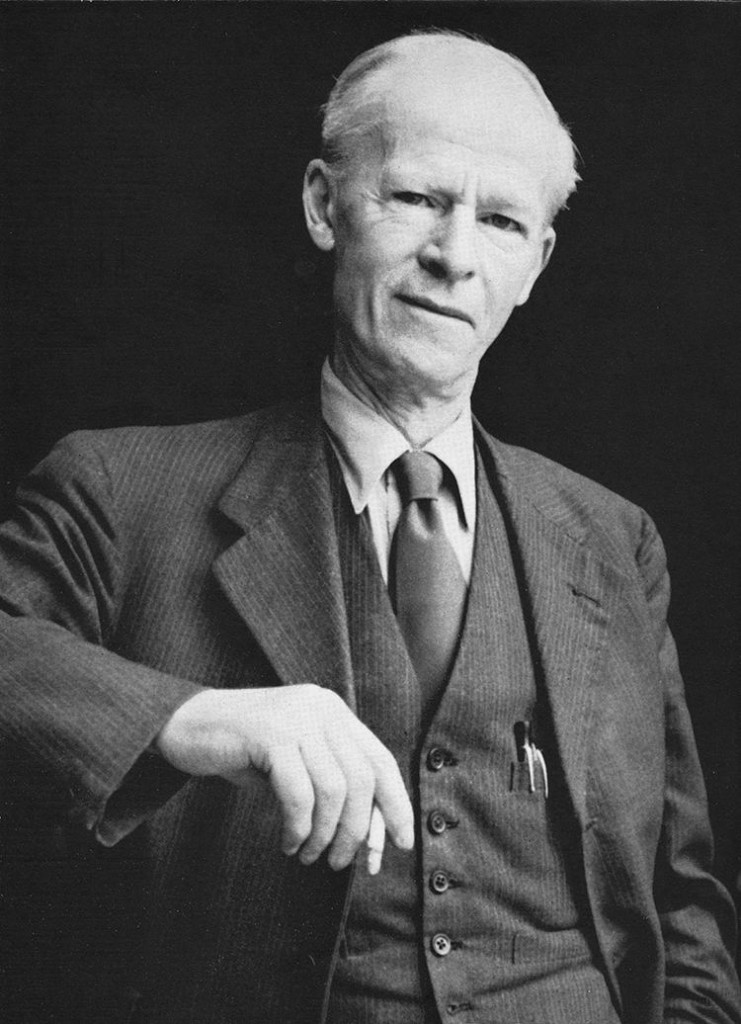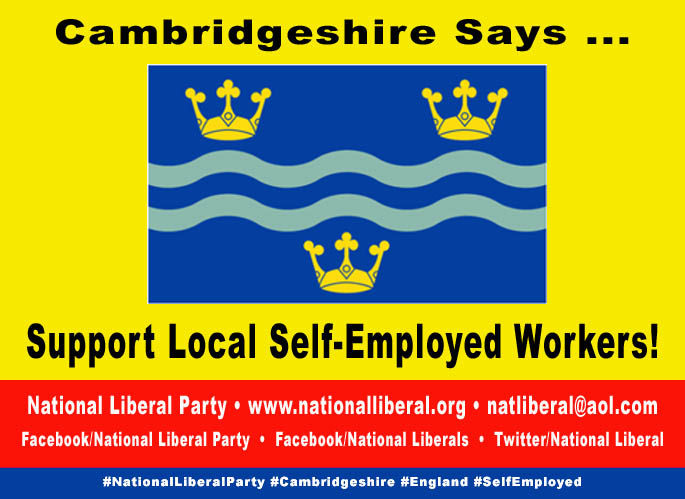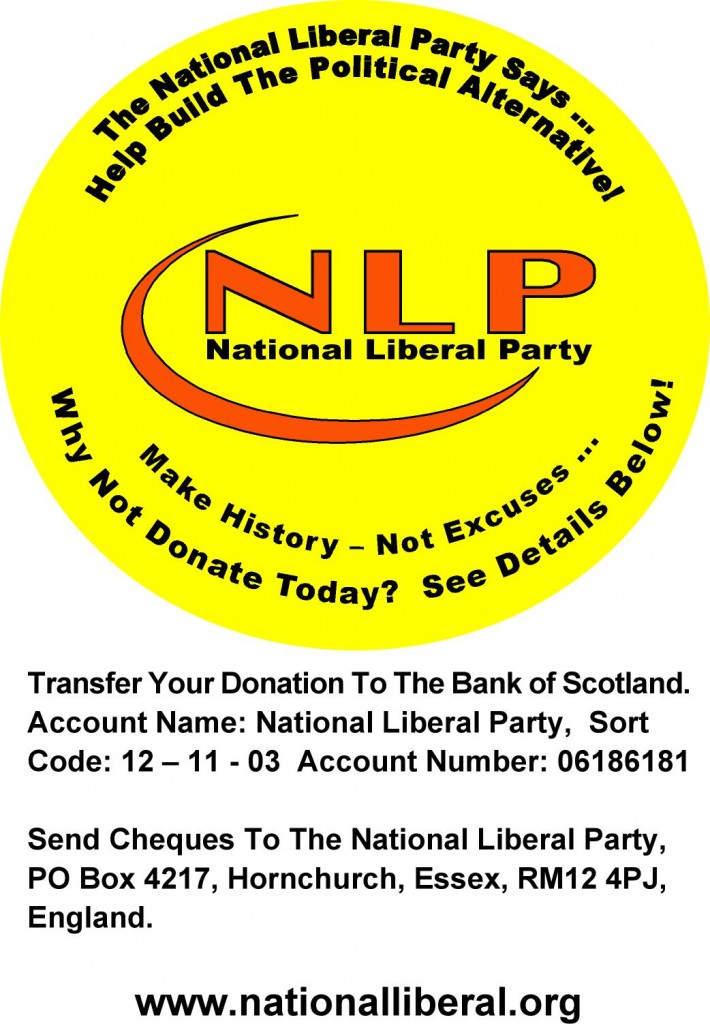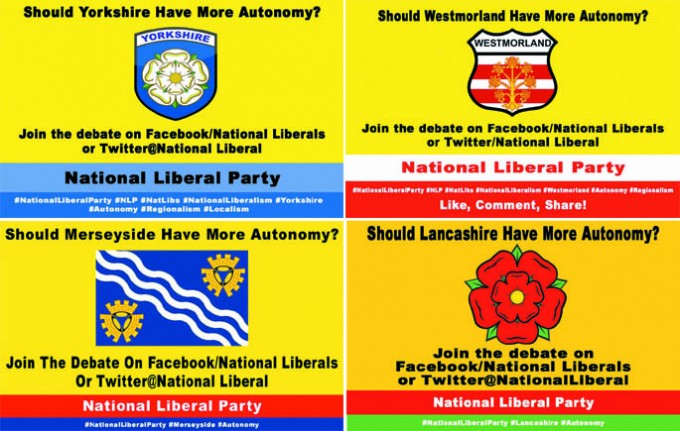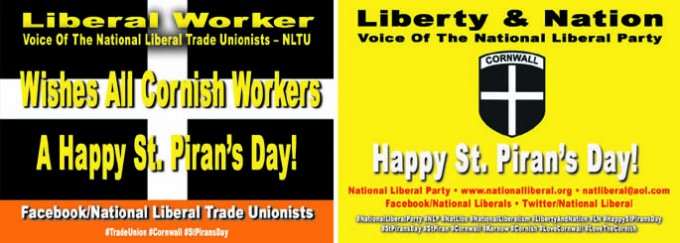‘Old Thunder’: Neither Capitalism Nor Socialism (Part 2)
REGULAR READERS will be aware that Self-Determination is the raison d’étre of National Liberalism. To this end, National Liberals believe that the principle of Self-Determination can be applied largely in three areas – National, Political and Economic. It follows then, that the National Liberal Party supports practical policies that advance National Self-Determination, Political Self-Determination & Economic Self-Determination.
One socio-economic theory that chimes with our ideal of Self-Determination is Distributism. It advocates the widespread ownership of private property and the means of production to as many people as possible. In short, the ownership of businesses should be in the hands of those doing the work. Distributism opposes both capitalism and socialism, which are viewed as centralist & exploitative. In contrast, it supports the likes of co-operatives, the self-employed and small family businesses.
Its main advocates were two famous Catholic writers, Hilaire Belloc and G. K. Chesterton. Their writings were based in the Church’s social doctrine of subsidiarity – the dangers inherent in too much power being centralised in the hands of the state – as expounded by Pope Leo XIII in Rerum novarum (1891), a doctrine that would be re-stated, re-confirmed and reinforced by Pope Pius XI in Quadragesimo anno (1931) and by Pope John Paul II in Centesimus annus (1991).
Some time ago our attention was drawn to an old article – https://oldthunderbelloc. blogspot.com/search?q=Neither+Capitalism+Nor+Socialism – which appeared on the Old Thunder Belloc blogsite. It is a reprint of Belloc’s Neither Capitalism Nor Socialism, first published in the July 1937 issue of The American Mercury. (‘Old Thunder’ is a reference to the Anglo-French historian, essayist and poet, Hilaire Belloc.) This section of the article should be read directly on from Part 1 – see link below.
It goes without saying that there are no links between The American Mercury, the Old Thunder Belloc blogsite & the National Liberal Party. It should also be noted that whilst Belloc was a Catholic, the NLP welcomes members & supporters from all religions and none. Please note that we’ve kept the original US spellings as they are.
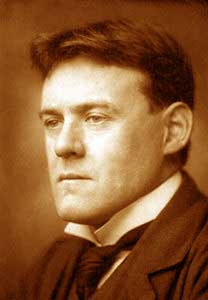
The Anglo-French writer Hilaire Belloc – known as ‘Old Thunder’ – was the main advocate of Distributism in Britain. His social & economic ideas are of great interest to National Liberals. We feel that Distributism would set the tone for a society which aims to transfer all forms of power down to the lowest level possible. Here, for instance, ‘workers will own - and owners will work’ & small will definitely be beautiful!
It is important to insist upon this last point because there is great confusion upon it. Not only do the enemies of well-divided private property and the Distributist program ridicule and belittle it as impossible in modern large industry, because modern large industry involves concentration of capital, but many friends of Distributism become muddled on the same point. They would like to see the resurrection of the small craftsman. They deplore the damage done to society by large industry, they forget that while small craftsmanship may be subjected to economic servitude, large industry might be held co-operatively by a guild or a great number of shareholders. There have not been wanting states of society in the past where the small craftsman was a slave. There have not been wanting states of society in the past and the present also where the small craftsman and the small farmer was a wretched dependant upon usurers and tax collectors. The two ideas of small craftsmanship, small husbandry, etc., and the distribution of ownership must not be confused. They have a common spiritual appeal, but they are not identical.
From this list of what Distributism is not, let us turn to consider what the social philosophy of Distributism is.
We desire a better distribution of private property in a least a sufficient amount to secure freedom of action to the average man. It is natural to man to own, and to use his possessions under the action of his own will. To have one’s life ordered by other men with no authority other than their possession of the means of production is not the norm, consonant to human instinct. There are conditions where life must be controlled: for instance, for the ordering of an army or a religious group, or the saving of imperilled people such as shipwrecked men on a raft at sea. Among these you may and sometimes must suppress the action of individual will, and in some cases even such action of the will over material objects as we call ownership. The soldier acts under, the monk and member of a ship wrecked crew own nothing; the one because he has abandoned the natural human right of property for a particular purpose, the other because under highly abnormal circumstances he was compelled to do so. The shipwrecked crew can only save itself as a communist body; the monk can only fulfil his vocation as the member if a communist body. But in either case the whole point of such membership is that it is an exception to the common run; in the one case voluntarily, in the other (for the moment) inevitably.
When men are at once politically free and economically unfree (because they do not own the means of production and so cannot live save by leave of a master) they are called proletarian, and their general body is called the proletariat.
One might quarrel with that term also. It comes from an old Roman term which meant something very different. But here again things must have names, and this is the accepted name for that very inhuman human condition. When a proletariat has come into being, that is, when there are so large a number of citizens dispossessed of any useful amount of property as to impose their spirit upon the mass of society, we talk of that society as Capitalist.
Here again is a bad term; there can be no production of wealth anywhere or anyhow without the use of capital; every society is capitalist in that sense. When a man talks of abolishing capital in industry he might as well talk of abolishing air in breathing. The discussion turns not on whether there should be capital but on who should control it. The term Capitalist, however, has come to be used as a sort of shorthand for a society in which a minority, control the means of production, and the rest, the proletariat, live at the will of such controllers. Capitalist in that sense the industrial areas of the world have become—and we know the result. The attempted combination of political freedom with a lack of economic freedom is not permanently workable, and meanwhile there is constant confusion, loss, and a direct opposition of interests between those citizens who actually produce the wealth by which they live and those who control the production of that wealth—and control the producers at the same time.
Of the innumerable evils proceeding from so unnatural and abnormal a state of affairs, the worst are, as always, spiritual evils.
• THIS ARTICLE should be read in conjunction with ‘Old Thunder’: Neither Capitalism Nor Socialism (Part 1) https://nationalliberal.org/‘old-thunder’-neither-capitalism-nor-socialism-part-1
Date: March 16, 2021
Categories: Articles
































